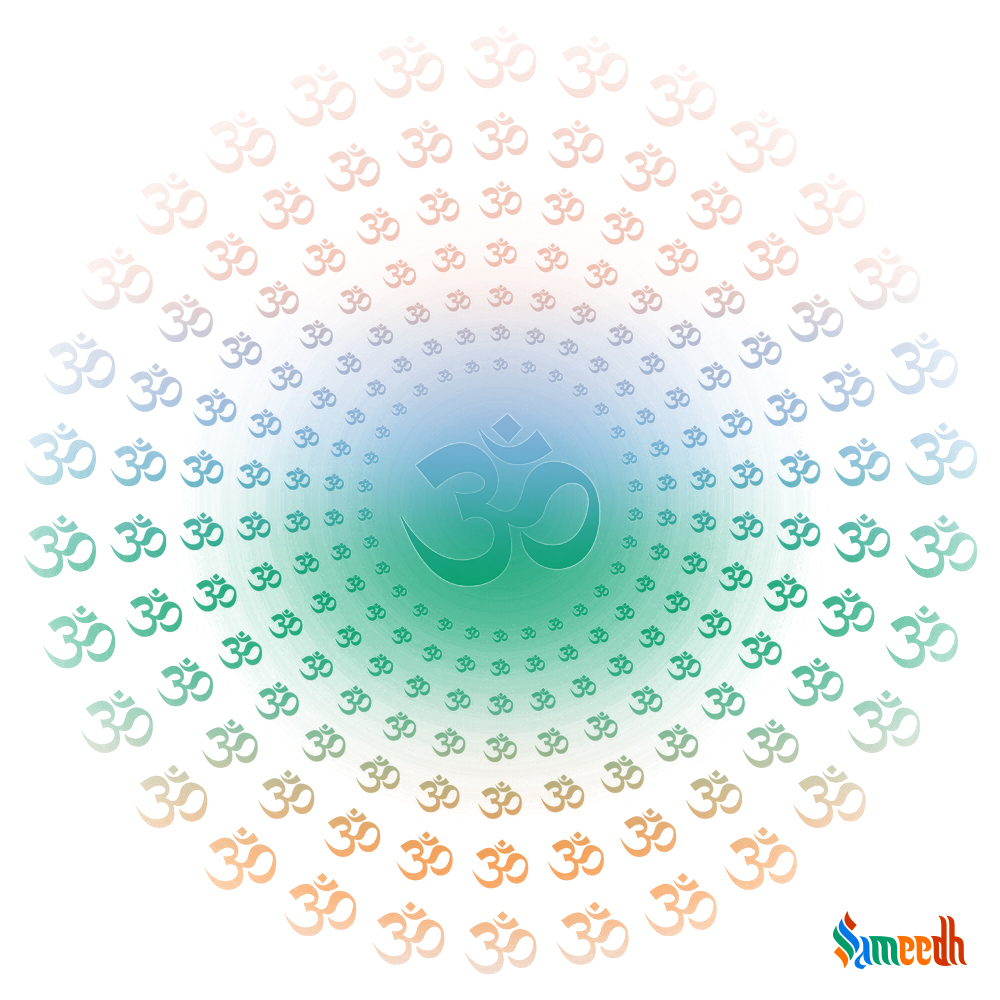The Shruti scripture is the reservoir of the nectar of knowledge coming from the gods. They contain the Four Vedas and affiliated scriptures, which ultimately creates the Indian way of life!

ETYMOLOGY
The word ‘Shruti’ has been used in the Indian history. Starting from music to mathematics, and physiology to philosophy – it has multiple meanings, and its origin can not be traced to a specific time.
Shruti are also the most ancient of the Indian scriptures that create the foundation for most of the other scriptures. The meaning of ‘Shruti’ is – ‘that which is heard’; and it indicates towards the method of transmitting the knowledge. It is believed that the gods themselves revealed the knowledge of Ved to the sages and scholars of those times. The same way, they also transmitted them to future generations through ‘vocal tradition’.
DATING AND HISTORICAL CONTEXT
The Shruti literature that is available today – can be traced back to merely 500 – 600 years back because they were not committed to writing. Legends say that the four Ved are at least 8000 – 10000 years old. Rugved is the oldest of Shruti scriptures and probably the oldest scripture in the world as well. According to some research, Shruti scriptures were created around 1500-2000 BCE. Since then, they were recited, memorised, and taught to the next generations verbally. Both Shruti and Smruti scriptures can be considered prevailing at the same time however one fact remains – Smruti scriptures are derivative works on the Shruti scriptures.
CONTENT
Shruti scriptures cover all the Ved – including all the Samhita, Brahman, Aranyak, and Upanishad connected to them as well. They are very much poetic, precise and well-drafted when it comes to the information contained within. Their writing style is one of the reasons why they survived millions of years without being published through literature. The four Ved themselves are incremental and evolutionary in nature.
LEARNINGS
The four Ved are the primary Shruti scriptures.
Rugved narrates the story of the early humanity. It also depicts the characteristics of every god – including Rudra, Vishnu, Indra, Agni, and Varun through songs in their praises.
Yajurved explains the processes of performing different Yajna and other socio-religious ceremonies. These are considered to be divine formulas and sacrificial rituals for progress.
Samved contains the chants and Mantra that are to be performed rhythmically on different occasions. It forms the basis for prayers and Arati in the praise of the deities.
Atharvaved encompasses the ways to wield the energy generated by the power of Ved. It includes knowledge of magic spells, scientific formula, secret scriptures, and examples.
The other affiliated scriptures such as Brahman, Aranyak, and Upanishad help in decoding and understanding the context of Ved.
CULTURAL INFUENCE
The Shruti scriptures form the basis of everything in the Hindu culture. From religious observations to social lifestyle and public administration – the Shruti scriptures have been a firm platform for their evolution. The people might not have read any of them, but they indirectly follow the Vedic instructions through cultural practices. Also, they gave rise to the evolution of Indian literature, arts, science, sports, and spiritual traditions.
Shruti scriptures are the result of divine connections!
Shruti scriptures take you to a new perspective about yourself, the universe, and the concept of life. But they are sort of codified and difficult to understand at once. They contain hidden references and multiple interpretations, so just reading them won’t be enough. You’ll need to listen to them and then recite them because they are Shruti.